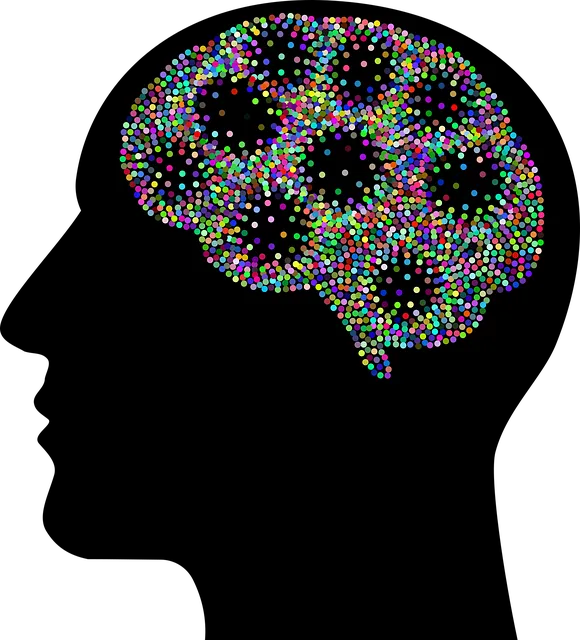The Parker Kaiser Permanente (PKP) Mental Health Department emphasizes cultural competency as a key driver for quality patient care, especially in diverse communities. They've developed a multi-faceted training program integrating educational workshops, simulations, and personal development exercises. A standout feature is the Mental Wellness Journaling Exercise, promoting reflection on mental health practices from patients' perspectives. This innovative model enhances cultural sensitivity, leading to improved diagnosis and treatment for diverse populations. PKP's robust evaluation strategy tracks both immediate and long-term impacts, ensuring training sustainability and positive influence on mental health services across communities.
Cultural competency training is essential in healthcare, aiming to bridge gaps in patient care caused by cultural differences. This article explores this crucial topic, focusing on the successful approach implemented by the Parker Kaiser Permanente Mental Health Department. We delve into their comprehensive training program and its impact on improving patient outcomes. Additionally, we discuss measurement strategies to evaluate the effectiveness of such initiatives, highlighting key metrics from the PKP Mental Health Department’s experience, serving as a model for other healthcare organizations.
- Understanding Cultural Competency in Healthcare: A Necessity for Effective Patient Care
- The Parker Kaiser Permanente Mental Health Department's Approach to Training
- Measuring and Evaluating the Impact of Cultural Competency Training Programs
Understanding Cultural Competency in Healthcare: A Necessity for Effective Patient Care

In the ever-evolving healthcare landscape, cultural competency has emerged as a cornerstone for delivering effective and equitable patient care. This concept, championed by organizations like Parker Kaiser Permanente’s Mental Health Department, transcends mere awareness; it demands a deep understanding of diverse cultural backgrounds, beliefs, and values. By recognizing and appreciating these differences, healthcare providers can create an environment where patients feel heard, respected, and supported, fostering trust and improving outcomes.
Cultural competency involves not just treating individuals but also understanding the intricate web of social and cultural factors that shape their experiences and interactions with the healthcare system. This is particularly crucial in the mental health domain, where cultural sensitivity can significantly impact diagnosis, treatment plans, and patient adherence. Through initiatives like Community Outreach Programs Implementation and Mental Health Education Programs Design, healthcare organizations are equipping staff with Conflict Resolution Techniques to navigate these complexities, ensuring every patient receives care tailored to their unique cultural needs.
The Parker Kaiser Permanente Mental Health Department's Approach to Training

The Parker Kaiser Permanente Mental Health Department has pioneered an innovative training program focused on cultural competency within healthcare. This initiative aims to equip medical professionals with the skills to provide empathetic and effective care, especially in diverse communities. The department’s approach involves a multi-faceted strategy, combining educational workshops, practical simulations, and personal development exercises. One standout feature is their Mental Wellness Journaling Exercise Guidance, which encourages providers to reflect on their own mental health practices while fostering a deeper understanding of patient experiences.
Through this holistic training, the department emphasizes the importance of positive thinking and emotional healing processes. By integrating these concepts into clinical practice, healthcare providers are better equipped to support patients’ overall well-being, ensuring a more comprehensive and culturally sensitive approach to mental health care. This innovative model sets a benchmark for other institutions seeking to enhance their cultural competency training programs.
Measuring and Evaluating the Impact of Cultural Competency Training Programs

Evaluating the effectiveness of cultural competency training is essential to understanding its impact on healthcare delivery and patient outcomes. The Parker Kaiser Permanente mental health department has implemented various programs, utilizing unique metrics to assess success. Their approach involves a multi-faceted evaluation strategy, including pre- and post-training surveys to gauge knowledge gain and self-reported changes in attitudes and behaviors. These tools capture the immediate effects of training, providing insights into participants’ understanding of cultural competency concepts.
Furthermore, long-term follow-up assessments are conducted to measure sustainability. By tracking improvements in patient interaction skills, empathy, and cross-cultural communication over time, researchers can determine the longevity of training outcomes. The Mental Health Education Programs Design focuses on not just knowledge transfer but also on coping skills development and building confidence among healthcare providers. This comprehensive evaluation ensures that training programs are effective, adaptable, and positively influence the delivery of mental health services in diverse communities.
Cultural competency training in healthcare, as exemplified by the successful programs at the Parker Kaiser Permanente Mental Health Department, is a game-changer. By equipping providers with the skills to understand and address diverse cultural needs, these initiatives enhance patient care and foster more inclusive and effective treatment outcomes. With a focus on continuous evaluation and improvement, as shown by their measurable impact assessments, healthcare organizations can ensure that their training programs remain relevant and impactful in a dynamic world. This approach ultimately contributes to creating a more equitable and accessible healthcare system for all.






